- All courses
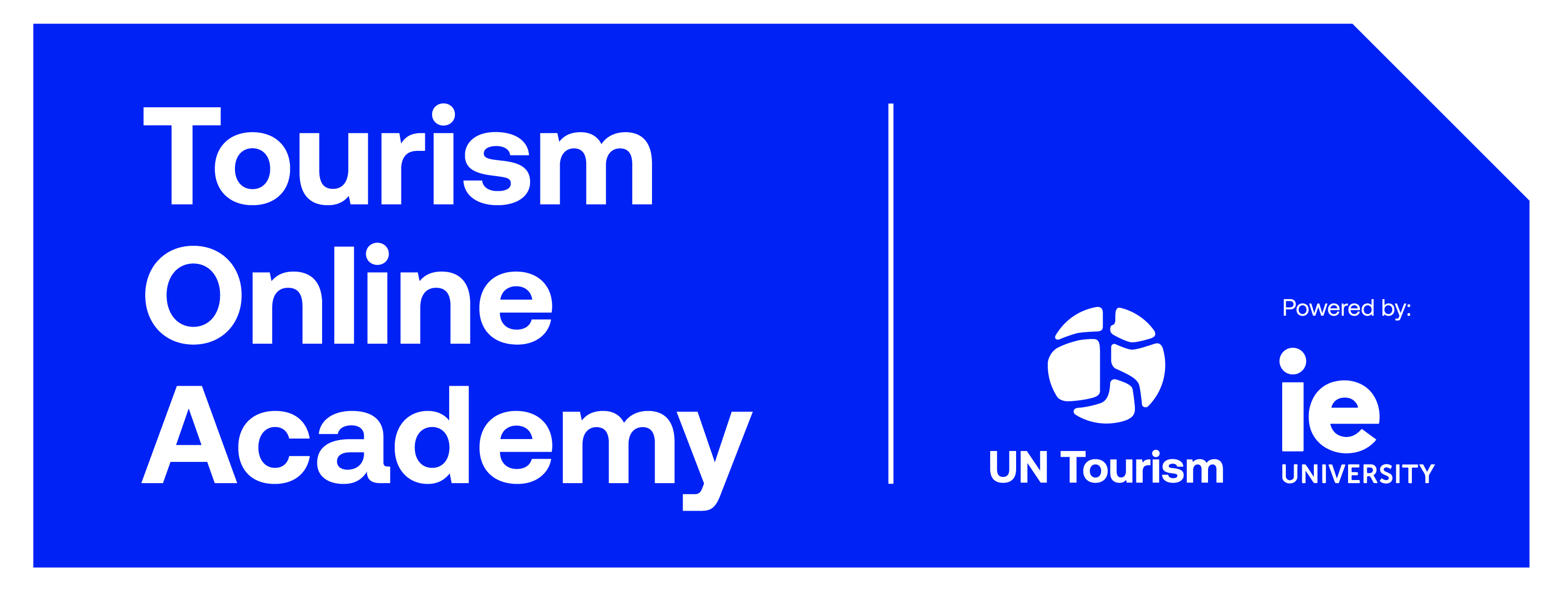

TOURISM SECTOR AND COVID-19
21 jul tourism sector and covid-19.
Tourism is one of the world’s most outstanding economic sectors, employing one in every ten people.
COVID-19 has been a turning point in all sectors and industries. And tourism has suffered the most from the consequences of the global pandemic.
Right now, one in three destinations worldwide ( 34% according to UNWTO data from July 2021), still have travel restrictions in place, and most require a negative COVID-19 test as a guarantee for entry.
In the face of the fall in international travel, domestic tourism has been the first to rebound. Given the current restrictions, this demand for domestic tourism will allow a number of destinations to offset the impact of the fall in international arrivals, as reflected in a diverse range of national tourism promotional campaigns.
The COVID-19 pandemic is an opportunity to rethink tourism and ensure its restart is more sustainable, inclusive and innovative. As UNWTO Secretary-General Zurab Pololikashvili notes, “we must rethink what the tourism sector is and what its contribution to people and the planet looks like”.
- Business Event Management: Navigating the World of Corporate and Social Gatherings Explore key strategies for successful corporate and social event planning and execution with our in-depth business event management course. Read more Start now Add to cart Business Event Management: Navigating the World of Corporate and Social Gatherings Explore key strategies for successful corporate and social event planning and execution with our in-depth business event management course. Read more
- Innovation and Digital Transformation in the Tourism Industry Explore digital transformation in tourism as you learn to implement effective strategies, embrace innovation, and elevate customer engagement and operational excellence. Read more Start now Add to cart Innovation and Digital Transformation in the Tourism Industry Explore digital transformation in tourism as you learn to implement effective strategies, embrace innovation, and elevate customer engagement and operational excellence. Read more
- Destination Marketing Develop robust marketing strategies for tourism destinations, focusing on market analysis, competitive positioning, and successful campaign implementation. Read more Start now Add to cart Destination Marketing Develop robust marketing strategies for tourism destinations, focusing on market analysis, competitive positioning, and successful campaign implementation. Read more
- Restaurant Operations Elevate your restaurant management skills with this online course, exploring food safety, service types, menu development, and effective inventory management. Read more Start now Add to cart Restaurant Operations Elevate your restaurant management skills with this online course, exploring food safety, service types, menu development, and effective inventory management. Read more
- Culinary Arts and Gastronomy Explore the link between tourism and gastronomy, the role of food in culture and sustainable alignment with the 2030 Agenda. Read more Start now Add to cart Culinary Arts and Gastronomy Explore the link between tourism and gastronomy, the role of food in culture and sustainable alignment with the 2030 Agenda. Read more
- Culinary Basics for Operations, Catering Management and New Techniques Master culinary basics, innovative techniques, menu development, and catering management in this comprehensive course for aspiring chefs and culinary enthusiasts. Read more Start now Add to cart Culinary Basics for Operations, Catering Management and New Techniques Master culinary basics, innovative techniques, menu development, and catering management in this comprehensive course for aspiring chefs and culinary enthusiasts. Read more
- Train the Trainer Develop professional training skills, enhance communication, and learn to design impactful training sessions in diverse professional settings. Read more Start now Add to cart Train the Trainer Develop professional training skills, enhance communication, and learn to design impactful training sessions in diverse professional settings. Read more
- Sustainable Destination Management Learn what goes into creating destinations that captivate visitors, safeguard the planet, and enrich local communities. Read more Start now Add to cart Sustainable Destination Management Learn what goes into creating destinations that captivate visitors, safeguard the planet, and enrich local communities. Read more
- Hotel Operations Get ready for your career in hospitality with this online course, focusing on operations, guest service, revenue strategies, and more. Read more Start now Add to cart Hotel Operations Get ready for your career in hospitality with this online course, focusing on operations, guest service, revenue strategies, and more. Read more
The Media’s Growing Role in Education
In today’s rapidly evolving world, both the media sector and education share a similar predicament in terms of how to adjust to new technology. As someone who has worked in the digital media space for over 13 years, I have witnessed massive changes in how people consume their daily news, I’ve seen century-old revenue models collapse, and attention spans shorten.
In this era of unprecedented change, there is reason to be both cautious and hopeful. Opportunities and threats that were previously unimaginable are now a reality. Both media and education are facing an uncertain future due to the rapid advance of Artificial Intelligence (AI).
The challenges we face require creativity and a willingness to adapt. By working together, media and education stand a better chance of weathering the storm. Trust in both sectors is at an all-time low in many countries around the world, and continuing to operate in the same way is unlikely to change this.
Instead, we must seize this opportunity by reevaluating our core functions.
Over the past years, Morocco World News, the news outlet I founded with my brother in 2011, has built several effective partnerships with local universities, focusing on youth empowerment, employability, media literacy and skills development. Such partnerships, I believe, hold the key for a sustainable future for both sectors.
By working together, the media industry and educational institutions can teach science effectively, be more inclusive, boost awareness on issues that matter, empower young people, and encourage growth.
Embracing this technological revolution will allow us to tailor content to the needs of modern students and news consumers. We can offer content in a variety of local languages and promote both critical thinking and problem-solving through increasingly interactive content.
More importantly, sectors such as media and education have the opportunity to promote life-long learning as a vital skill in our ever-changing labour market.
As the director of an English language news outlet in an Arab and French speaking country, I have witnessed how quickly a society can adapt to change and learn new skills. Morocco is now rapidly shifting, and English has become the primary language of science, entertainment and business. Young people are on board and driving the much-needed change.
In the years ahead, AI is set to disrupt both our sectors in seismic ways, prompting us to consider new ways to stay relevant to future generations who themselves face severe uncertainty about their future careers. In my experience, media platforms and educational institutes have an important role to play in the coming upheaval, and we can only do it together.
Strengthening ties between educators and the media will result in more engaging educational content. Interactivity and customization feeds the curiosity of young minds. It also encourages creativity and critical thinking. The use of advanced technology can help boost media literacy by bringing top educational content to the forefront of the news.
How many universities have amazing communicators and public speakers whose inspiring words do not reach beyond their walls? How many news stories are short in detail due to time pressure or a lack of expertise among writing staff? Bringing the two sectors together can solve both issues by connecting journalists with the voices that matter, at a time when they are truly needed.
I believe the answer to the coming wave of transformative technology lies in human connections. We need to connect the curious to those willing to share their knowledge, we need to empower people to check facts and sources, and we need to ensure this happens in an accessible and inclusive way.
Close partnerships between media organizations and educational institutes can help democratize learning and create a new positive public function for both sectors. My experience has shown me that these partnerships are easy to build and grow and hold the key to a more sustainable future for both sectors.
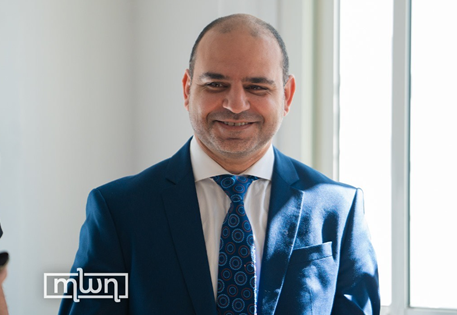
Adnane Bennis Co-Founder and CEO of Morocco World News
Crisis Management in Tourism
The tourism sector has faced unprecedented volatility and uncertainty over the past 5 years, both globally and locally. The pandemic and its related restrictions, the geopolitical situation and local conflicts, the acceleration of inflation and price increases, and the disruption of logistical chains led to the share of tourism in the global economy decreasing significantly. By the end of 2023 only a few destinations had managed to return to 2019 levels.
Now, however, the outlook is more encouraging. Consumer behavior in 2024, despite ongoing uncertainty, indicates a strong will to travel. Thanks to this, the sector is adapting to changing reality – new tourist routes are emerging and existing ones are being developed, new hotels, airports, restaurants, and other infrastructure are opening.
That said, the sector is still affected by seasonality, high fixed costs, a lack of qualified people and relatively low profitability. In rapidly changing and disruptive environment, with unforeseen changes, crisis management and change management become critical to ensure the industry is sustainable and safe for tourists and business.
Crisis management in the tourism sector generally involves a strategic and proactive approach taken by business to anticipate, prepare for, respond to, and recover from unexpected events that may influence the safety, travel plans, and the overall satisfaction of tourists. The primary goal is to minimize the effects of a crisis, restore confidence, and enable a relevant recovery for all parties involved.
As for any general management activities, crisis management in tourism logically includes several steps:
1)Assessing the nature of crisis
Tourism industry crises can take different forms, each demanding a specific response. Natural disasters can disrupt travel plans, infrastructure, and local communities. Human-made events, such as terrorist attacks, civil unrest, or geopolitical tensions, can impact the safety and security of tourists in affected regions. Additionally, health-related issues, exemplified by pandemics like COVID-19, present unique challenges with widespread implications for global travel.
2)Pre-Crisis Planning and Preparation
Effective crisis management starts long before a crisis itself appears. The tourism industry must engage in pre-crisis planning and preparedness to mitigate potential risks and enhance responsiveness during emergencies. This involves conducting risk assessments, identifying vulnerabilities, and establishing crisis response teams with clear roles and responsibilities. Relevant communication plans are essential to spread accurate and timely information to tourists, employees, and the public, assuring transparency and trust.
3)Crisis Response and Communication
While crisis starts, the effectiveness of the response and communication can make a significant difference in managing the situation. Tourism enterprises must activate their crisis response teams promptly and implement pre-established protocols and procedures. Swift communication with relevant authorities, local communities, and other stakeholders is essential to assess the situation accurately and make informed decisions. Transparent communication with tourists is crucial for managing expectations, providing safety guidelines, and offering alternative solutions.
4)Flexibility and Redemption Strategies
Flexibility is a crucial component of effective crisis management in tourism. Diversifying tourism offerings, both in terms of destinations and experiences, may reduce the impact of crisis that affect specific regions or sectors. Creating contingency funds and investing in comprehensive insurance can provide financial stability during challenging times. Collaborative efforts among public and private sectors can improve the managing capabilities, fostering a collective commitment to the industry’s survival and recovery.
5)Post-Crisis Assessment and Mastering
After managing a crisis, a thorough post-crisis analysis is vital to learn from the experience and improve future crisis management strategies. The tourism industry should embrace a culture of life-long learning and adaptation, updating plans based on emerging trends and challenges. Sharing lessons learned with the industry community promotes knowledge sharing and improves practices for the tourism sector.

ARTEM KLYKOV , PhD, MBA professor of tourism, Silk Road University Samarkand visiting professor, SWISSAM International University hospitality expert media contributor coach, mentor
Integrating tourism and hospitality curricula in high schools with AHLEI
The American Hotel and Lodging Educational Institute ( AHLEI ) established in 1953, is one of the foremost certifying bodies and publishers of quality resources to train, develop, and certify hospitality industry professionals globally. AHLEI is also committed to supporting the education of those just starting to pursue their careers, the next generation of hospitality and tourism leaders, innovators and champions!
AHLEI conducted extensive Gen Z research prior to creating our newest curricula. These results also influenced the new Education Toolkit , created in partnership with UN Tourism for the incorporation of tourism as a subject in high schools.
Young people who are excited about creating great experiences, meeting new people, making a positive impact on their communities and growing in their careers are increasingly drawn to the hospitality industry.
Why Introduce Tourism and Hospitality to School-Age Students?
AHLEI’s research pointed to some intriguing findings. Students are making decisions increasingly early about the career they want to pursue but many don’t consider hospitality. Why? Because of preconceived notions about the opportunities available to them. Additional findings include:
- Gen Z students are very practical. They are looking for a return on their educational investments. The more we can educate them about career growth and earning potential, the more they will start thinking seriously about tourism and hospitality as a career choice.
- Gen Z students prioritize feeling proud of what they do and where they work. They are motivated by exciting and interesting careers, Instagram-worthy experiences, and the positive impact the hospitality industry has on communities and economies.
- Gen Z is interested in inclusivity and in the freedom to be who they are. Hospitality is an amazing industry that encourages guests and employees alike to be their authentic selves.
AHLEI hears from our industry partners that while some young people may not be as skilled at test-taking or formal education, if they have great interpersonal skills, positive energy and good problem-solving instincts, there is a home for them in the hospitality industry. There are excellent opportunities for anyone with these qualities who is willing to work hard and learn.
Thus, in our new curriculum we emphasized relevance in the real world, encouraging exploration and practice through inquiry-based and problem-solving activities, and engaging students through our design choices, narrative voice, and multimedia resources. Let’s explore our newest resources.
Implementing the HTM Curriculum
The AHLEI high school curriculum, Hospitality and Tourism Management provides an engaging comprehensive exploration of different segments within the industry and the career paths in each.
This article includes:
- Implementation of the curriculum including organization, coverage and educator support
- Key themes and learning objectives of the text
- Endorsement by the U.S. hotel and lodging industry
- Testimonials from international partners
The AHLEI authoring and instructional design teams place a high priority on creating relevant, accurate, up to date and industry-driven content. Passive memorization is not the goal. Our materials are designed to help students think and do! There are elements incorporated regularly throughout learning and teacher resource materials designed to prompt student output and higher levels of learning.
Organization
Hospitality & Tourism Management is a single-volume textbook that can be aligned with any length program, though it is most often used alongside one- or two-year programs. The text is broken into modular units covering each segment of the industry. Each unit is comprised of self-contained chapters that dive deeper into skills and concepts. Optional activities, case studies and projects offer more rigor and application if desired. This modular approach along with helpful pacing guides allow educators to easily align the curriculum with the preferred order and structure of their program.
Hospitality is a huge and varied industry and the HTM curriculum includes a comprehensive overview of lodging and hotels, food and beverage operations, event management, travel and tourism. Coverage includes an overview of each segment, organizational structure and career paths, key roles and responsibilities. Opening chapters highlight the importance of the role of the industry and introduce students to core concepts and skills around providing excellent guest service. Closing chapters focus on business and leadership concepts like marketing, finance and entrepreneurship.
The coverage in HTM is based on input from dozens of industry professionals, teachers and subject matter experts for a relevant contemporary take on hospitality education with both practical and aspirational applications.
Teacher Support
The online teacher resource portal for Hospitality & Tourism Management includes a wealth of supplementary materials to help educators deliver the content to their students. The Teacher’s Companion includes notes, additional activities and discussion questions as well as organizational tools and engaging videos summarizing the main concepts in each chapter. Test Banks, Power Points, Instructor activity guide and lesson plan tools are also available to make class prep easy.
AHLEI also offers The Certified Hospitality Instructor (CHI) Program , a self-paced training course to help educators without an industry background effectively teach content in these areas. In addition to the course and exam, candidates for the CHI must also complete 120 hours of internship with a hospitality organization.
Hospitality and Tourism Specialist Credential
The HTM curriculum prepares students to earn their Hospitality Tourism Specialist credential from the American Hotel & Lodging Association, (AHLA), today the largest trade hotel association in the U.S. with 32,000 hotel members. Endorsed by some of the premier hospitality brands in the world, the HTS credential demonstrates student mastery of industry concepts. Students may earn the credential upon passing the AHLEI HTS exam and showing 100 hours of work experience in a hospitality role.
Assessment and credentialling is a large part of our program development. Credentials serve as a “passport” for students leaving the classroom, demonstrating the mastery that they achieved and using it as an entry into jobs within any segment of the industry.
Key Themes and Learning Objectives
Career readiness and technical skills.
One of the key themes throughout Hospitality and Tourism Management is that hospitality is a business, and a mastery of both technical and “soft” skills will open endless possibilities for career advancement. Operational and managerial topics as well as key math concepts are introduced in each unit. In addition, the text focuses on career readiness skills like written and verbal communication, problem-solving and teamwork, all in the context of a hospitality workplace.
Global Awareness
Hospitality is a global industry, supporting local economies and bringing together people from around the world. Global awareness and appreciation of and respect for different cultures is another core theme featured throughout. The text features international examples, discussions of cultural awareness, and coverage of cultural and operational differences in different countries.
Application
Throughout the text are scenarios, case studies, projects, activities, discussion questions and more, all designed for learners to immediately apply what they are learning, even from within the classroom. This presentation maximizes student engagement, understanding and retention of key concepts.
Endorsements and Formal Recognition
Hospitality and Tourism Management Second Edition is recognized by leaders in the U.S. hotel and lodging industry, including:
- Marriott International
- BF Saul Company Hospitality Group
- G6 Hospitality LLC
- RRI West Management
- Real Hospitality Group
- Mid-Continent Hospitality
- TradeWinds Island Resorts
These industry leaders appreciate that HTM Second Edition highlights the knowledge and skills that hospitality leaders look for in their employees today. HTM program completion, along with the HTS credential, fully prepares a learner to be a high-potential candidate for entry-level positions with the experience needed to bring value to the industry and grow in their careers.
Expand Your Horizons with HTM
The second edition of HTM offers learners a global perspective of the industry, its opportunities and its impact on the world.
Two of AHLEI’s valued governmental partners, and UNWTO member states, share the positive impact the HTM program can have on a national tourism industry below.
Jamaica’s Minister of Tourism, Hon. Edmund Bartlett, CD, MP., states:
“The Hospitality and Tourism Management Program has been a game-changer for Jamaica’s tourism industry and our nation. We have witnessed remarkable transformations through this innovative program in partnership with the esteemed American Hotel and Lodging Educational Institute (AHLEI). Our students now have the opportunity to acquire certification from AHLEI and an Associate Degree in Customer Service, equipping them with the skills and expertise needed to excel in the hospitality sector. Since its introduction in select high schools in September 2018, the HTM Program has ushered in a new era of professionalism and excellence in our tourism sector. We have witnessed a significant upskilling among our youth, creating a more competent and dedicated workforce prepared to deliver exceptional service. I am incredibly proud of the hard work and dedication put forth by our students, schools, and industry partners who have embraced the HTM Program. Together, we are shaping a brighter future for Jamaica that empowers our youth and ensures our country remains a premier global destination for years to come.”
Ms. Janet Forbes-Dean, Subject Coordinator for Family and Consumer Science Education at Jack Hayward Senior High School in Grand Bahama, says:
“The high school students at the Jack Hayward Senior High School have attained numerous AHLEI International Certifications over the past thirteen (13) years. These certifications are our core examination. There is no Bahamas General Certificate of Secondary Education (B.G.C.S.E.) national examination for hospitality students. AHLEI’s program is awesome. We have former and current students who received one or more certifications in Kitchen Cook, Breakfast Attendant, Front Desk Attendant, HTMP Year 1, Restaurant Server, START, Golden Opportunities, Guest Service Gold, and Golden Opportunities Tourism. These certifications along with the high school Hospitality and Tourism Curriculum are essential for students who are desirous of continuing a career in Hospitality.”
Get Started Today with AHLEI’s Hospitality & Tourism Program
We can’t wait to help you get started. Learn more here .
For further questions, contact Ed Kastli, Channel Vice President of International Sales, at [email protected] .

Elizabeth O’Brien Senior Product Manager
Enhancing Tourism Education t hrough Volunteer Teaching Experiences
Submitted by Stephen Sayers,
English Lecturer; Faculty Advisor to the IFTM Volunteer Circle
In 2019, ‘The IFTM Volunteer Circle’ (IFTMVC) began providing support for poverty alleviation through bi-annual volunteer teaching trips for 7-10 days to raise the interest and ability of junior high-school students at the Second National High School in Cong Jiang County, Gui Zhou. Historically, local students in Cong Jiang have been unable to gain access to better universities due to poor English scores in their ‘high-school entrance’ exams.
Traveling to the location, and participating in community engagement – meaningful, interactive, and immersive – is creating an educational experience that complements theoretical lessons, is highly memorable, and most importantly capable of transforming volunteers. In the words of one volunteer:
“I often choose to be alone because I find it difficult to integrate into the community. But when I met this group of students, their enthusiasm had an infectious force, so I unconsciously fell into it. Their enthusiasm and vitality made me confident and dare to communicate with them!”
An analysis of 50 students’ reflections and those of several students shared four years after their initial trips illustrates transformation in three areas: personality traits, skills development, and perspectives.
- Personality traits
Students expressed transformation in many aspects of their ‘inner-world’. They showed an increased sense of “happiness”, “optimism”, “confidence”, “boldness”, “being outgoing”, “gratitude”, “well-being”, “fulfillment”, “enthusiasm”, “cherishing life”, and “gratefulness”. They saw that they had demonstrated “responsibility”, “adaptability”, and “initiative” and had an improved “attitude”.
“I used to be a very introverted and sensitive person, and I was afraid that people would hurt me, so I built a tall wall in my heart to protect myself from being hurt. After this trip, I find myself happier and more optimistic. The naivety and braveness of those children encourage me a lot.”
“ Through this activity, I experienced the joy of being a teacher. I gradually became less shy during the activity. I started to become bolder and took the initiative to communicate with those students who were not fond of speaking English. I successfully helped them to confidently speak English.”
“After this trip, I can better adapt to the environment, and I know how to communicate with others better, which is the biggest gain for me.”
“This event made me cherish my life now. I should no longer complain about the living environment, and no longer worry about small difficulties. Now I can do so many meaningful things, not because I am excellent, but because I am lucky enough.”
- Skills development
Another area of transformation concerned skills development, including “communication”, “public speaking”, “problem-solving”, “teaching”, “social”, “leadership” and “critical thinking”.
“I was a bit shy in the first class as it was my first time standing in front of the classroom as a “teacher”. However, I think I made some progress. Gradually I talked louder and became more comfortable in the class. I improved public speaking skills in a way.”
“This journey has changed me a lot, including my work attitude, accuracy of information, understanding of students, and teaching skills… The local teachers taught me some teaching skills and some software to assist in teaching.”
“The trip changed me in different ways… it improved my social skills. I am not an out-going person, sometimes it may be hard to talk a lot with others from the very beginning…”
“The trip changed my view of my influence to the world. I can’t change (all) the students totally, but I can influence someone and it is enough.”
“… for myself, I will not wear something like AJ shoes anymore… Maybe it doesn’t matter but it just makes me feel uncomfortable anyway…”
- Perspectives
In order to strengthen students’ attitudes of ‘mutual respect and understanding’ (GCET – Article 1), one of the guided reflection questions challenged the prevailing attitude that volunteering is the ‘haves’ providing for the ‘have nots’. Many students developed the sense of perception to see the inter-connectedness of volunteering and personal transformation.
“I used to think volunteering is… to try my best to provide help to others in need. After this trip, I think volunteering is not only unilateral help, but also an opportunity to learn.”
“I always thought that volunteering was just a donation to help children in poor areas. After this activity, and integrating into the children’s life, I realized the meaning of volunteer activities. We open the window of the world for them, and they bring us the touch and beauty of life.”
“This is my second time participating in this project, and the change from being a participant to a leader has given me a deeper understanding of the entire activity… through… planning and organizing, I realized that the success of an activity doesn’t solely depend on the richness of its content. It also requires meticulous organization and smooth coordination of various aspects. Learning from previous experiences and continuously improving the activity plan can attract capable individuals to participate and maximize the project’s impact. This is how my understanding of volunteering has changed. It has made me realize that volunteering is a collective effort…”
Four years after her first trip and now a Master’s student at University College of London, (UCL) shared her reflective thoughts. Her words testify to the power that well-designed volunteer trips have in setting a student on a path to ‘becoming’ a life-long learner and protagonist for the greater good.
“I would like to say that participating in and organizing (the) volunteer trips (has been) one of the best and most worthy things in my life so far… During my two volunteer experiences in Cong Jiang, China, I actively participated in teaching English and engaging in various extracurricular activities with the students. The first time in 2019, I observed… many locals who believed education is useless, (and that) boys are better than girls… I recognized the deep-rooted challenges in altering perspectives towards education… and (that) it is a long-term task. I also realized the impact of education on shaping beliefs, and life choices… these volunteer experiences shaped me to be a better person with more confidence and belief that I have the ability to achieve something…
Furthermore, these experiences have undoubtedly influenced my future aspirations. I would like to engage in volunteer activities continuously and am now participating in volunteer activities actively in London. They also sparked my interest in educational development and community engagement. As I envision my future, I see myself actively contributing to educational institutions or possibly even to international organizations or non-government organizations…”
Though much still needs to be learned to optimize the dual path of personal and social transformation that can be effected through these trips, it is clear they provide a path to a profound transformation in students’ and directly contribute to the IFTM vision, “As an advocate of community engagement, IFTM takes pride in producing graduates that not only excel professionally but also work for the greater good of society” (President’s Message; IFTM Website). This author believes that with ‘collective will’ and the wise allocation of resources this kind of innovative educational experience – integrating students and community engagement – can be extended to benefit all undergraduates and many more local communities.

Stephen Sayers English Lecturer Faculty Advisor to the IFTM Volunteer Circle
Startup Niches in Tourism in 2024: Opportunities and Potential for Growth
By Fabio Passos
In the ever-evolving landscape of the tourism sector,2024 promises to bring new opportunities for entrepreneurs looking to venture into the world of startups. As a professor, consultant, and mentor specializing in tourism and hospitality, with a focus on entrepreneurship, innovation, and business planning, I am always vigilant regarding emerging trends. In this article, I will highlight two startup niches that deserve special attention in 2024.
Women’s Travel Journey
The women’s travel journey is a growing niche that offers numerous possibilities for the development of tourism ventures. This segment encompasses the routing of trips exclusively for women, as well as the creation of spaces and tourist services that cater to the specific needs and preferences of this audience.
Within this niche, opportunities abound in various areas, including transportation, accommodation, guided tours, and dining. Startups can develop solutions that provide safe and inclusive experiences for solo female travelers, while also promoting connections among women who wish to explore the world together.
While there are already some initiatives focused on women’s travel journeys, including initiatives in Brazil where I have had the privilege to provide mentorship, there is still significant room for growth and innovation within this market. The emphasis on safety, community building, and personalization of travel experiences may be the key to success in this expanding niche.
Startups that venture into this market can stand out by creating exclusive travel packages for women, offering cultural, culinary, and adventure experiences tailored to female preferences. Furthermore, ensuring an environment in which travelers feel secure is crucial to attracting this audience.
Vacation Rental Property Management
The vacation rental property market has experienced exponential growth over recent years, largely driven by the success of Airbnb. However, this segment is now undergoing a phase of professionalization, presenting an opportunity for startups to excel.
Many investors and entrepreneurs operating in the vacation rental property market lack specific hospitality expertise. This can result in challenges related to customer service, governance, and property rate pricing. Startups can fill this gap by offering innovative solutions that help property owners manage their properties more efficiently and profitably.
Startups can focus on enhancing the guest experience by creating tools and services that make stays more enjoyable and hassle-free. Process automation, reservation management, and predictive maintenance are some areas where innovation can enhance the professionalization of vacation rental properties.
In summary, in 2024, the tourism sector offers exciting opportunities for entrepreneurs looking to explore specialized niches. Women’s travel journeys and vacation rental property management are just two examples of areas with significant growth potential. If you are interested in discussing these niches or other topics related to tourism and hospitality, I am available for further conversation.
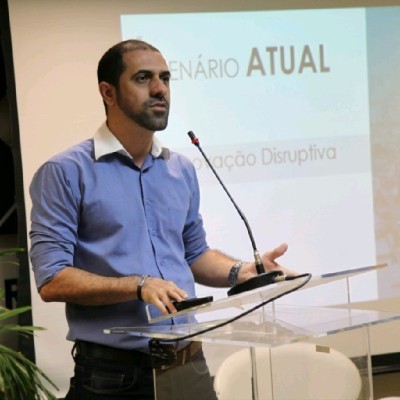
Fabio Passos Fabio, with a B.A. in Tourism, a graduate degree in Marketing, and an MA in Business Administration, boasts an impressive track record of over 15 years in both the national and international realms of tourism and hospitality. His diverse experience encompasses roles in hotels, property management, aviation, travel agencies, and cruise lines. Of particular note is Fabio’s keen interest in the home rental business, where he has emerged as a recognized expert in consultancy services. As the proprietor of Studio na Carioca and Passos do Turismo, he is dedicated to offering training programs for vacation rental owners, equipping them with the essential skills needed to elevate their revenue and excel in various critical aspects of home rentals.
Embracing Sustainability: Innovative Real Estate Solutions in the Hospitality Industry
By Rani Majzoub
The urgency to respond to climate change demands that all industries rethink and transform their practices and accelerate the shift to greater sustainability. The hospitality sector, historically singled out for its climate impact, is responding to this call and reimagining its foundations to embrace sustainable practices.
Innovative real estate solutions lie at the centre of this transformation. They are not merely a response to the growing environmental crisis but rather an embodiment of a commitment to reducing the industry’s ecological footprint whilst enhancing the guest experience. This article will delve into this profound shift, exploring the innovative measures shaping the future of hospitality and tourism, where sustainability and luxury harmoniously coexist.
Eco-friendly Building Design
Sustainable architecture is taking centre stage, with a visionary approach to building renovations. The adoption of eco-friendly designs exemplifies this shift, which prioritizes energy efficiency and environmental responsibility, encompassing a strategy ranging from incorporating renewable energy sources to efficient insulation and implementation of green roofs. Beyond their aesthetic appeal, these roofs are meticulously engineered to curtail energy consumption and provide a unique selling point for eco-conscious travellers. From solar panel installation to rainwater harvesting systems, these developments are revolutionizing tourism’s relationship with the environment.
Smart Technologies
The integration of smart technologies marks an inflection point in sustainable hospitality real estate. Automation and sensor-based systems are effective tools for diminishing energy consumption, optimizing climate control, and enhancing security. Solutions such as key cards for room lighting and temperature control, alongside mobile apps for managing rooms, empower guests to participate in energy conservation. These technologies not only enhance guest experiences but also promote resource efficiency.
A notable example is the seamless integration of the Internet of Things (IoT) in hotel operations, allowing real-time adjustments of room conditions based on guest preferences and occupancy. This will elevate guest comfort to unprecedented heights and showcase the fusion of technology and sustainability as the future of hospitality real estate.
Water Conservation
Fresh water, a precious and finite resource, assumes even greater significance in regions grappling with water scarcity. In such places, the need to conserve water is imperative. Innovative real estate solutions involve water-efficient fixtures, including low-flow faucets, showerheads, and greywater recycling systems, serving the dual purpose of curtailing water consumption and mitigating the ecological repercussions of wastewater. A notable trend in the sector is the adoption of rainwater harvesting systems, which collect and store rainwater for uses such as irrigation, toilet flushing, and cooling systems. Through diminishing reliance on municipal water sources, hotels make meaningful contributions to water conservation while trimming utility bills, underscoring the intersection of ecological responsibility and cost-efficiency.
Sustainable Materials
From furniture décor to linens, the hospitality sector is witnessing a resounding shift towards sustainability. This transformative wave embraces the spirit of reuse and locality. Recycled, upcycled, and locally sourced materials are now finding their way into the heart of hospitality, reshaping the aesthetics and ethics of hospitality.
We can consider the choice of reclaimed wood or recycled plastics for crafting hotel furniture, a nod to the industry’s commitment to reducing waste and endorsing eco-friendly practices. The adoption of such materials reduces the environmental footprint and presents an opportunity for hotels to craft distinctive and alluring interior designs. Guests, too, are becoming increasingly appreciative of the narratives that accompany these furnishings, carrying with them a unique story of renewal and resourcefulness. This newfound synergy between aesthetics and environmental responsibility is reshaping the landscape of hospitality.
Community Engagement & Education
Sustainability transcends the confines of premises; forward-thinking establishments are actively engaging with the community while educating their guests on sustainable practices. This multi-faceted approach enriches the guest experience and fosters a relationship between the hotel and its community. These interactions can take shape in various ways, such as partnerships with eco-friendly artisans and sourcing food locally to reduce carbon footprint while contributing and empowering the community.
Hotels are increasingly offering eco-friendly excursions, encouraging guests to partake in nature-focused activities, enriching their experience and inspiring their sense of responsibility towards the environment.
Renewable Energy Sources
Renewable energy sources serve as a foundational element in the development of sustainable real estate. With the emergence of solar panels, wind turbines and geothermal systems, these have become intertwined into the fabric of hotel and resort facilities, marking a solid step away from the reliance on fossil fuels. By generating their own renewable energy, establishments trim operational costs and significantly reduce their carbon footprint.
Solar panel installations on rooftops or in parking areas emerge as powerful generators of clean electricity. Concurrently, some forward-thinking establishments are exploring the possibilities for wind turbines and geothermal heating and cooling systems to reduce their dependence on non-renewable energy. Such initiatives manifest as sustainable choices and sound financial strategies, illustrating the escalating potential of renewable energy.
Waste Reduction and Recycling
Innovative solutions extend to waste management, where hotels proactively reduce, recycle, and efficiently manage waste. Strategies include comprehensive recycling programs, organic waste composting, and collaboration with local initiatives for responsible waste disposal, contributing to environmental sustainability and the local community. By adopting a circular approach, hotels minimize landfill-bound waste and reduce the need for virgin resources in goods production, fostering a sustainable and economically sound future.
The shift to sustainability in the hospitality industry, driven by its environmental concerns and long-term strategic thinking, is transforming the sector. As travellers increasingly prioritize environmental issues, hotels and resorts are leading the way in sustainability, benefiting both the planet and their bottom line. Looking ahead, we anticipate a future enriched with more ground-breaking solutions to reshape the tourism sector even further, setting a sustainable precedent for the future. This journey is imperative in addressing global environmental challenges and meeting travellers’ eco-friendly expectations, promising a brighter, sustainable future for hospitality.
With gratitude to Anan Zeitoun, Director of Real Estate Advisory, and Haya Serhan, Consultant in Real Estate Advisory for their contributions.
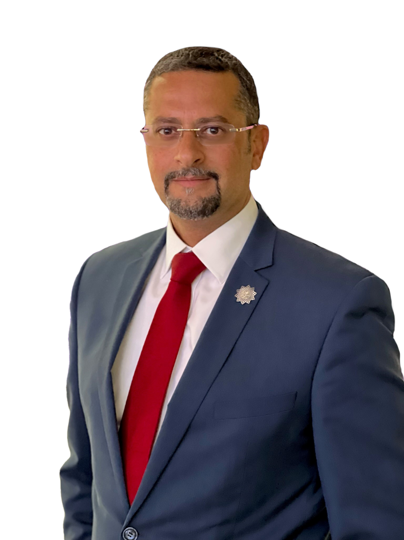
Rani Majzoub Head of Real Estate Advisory at KPMG Saudi, Head of Advisory at KPMG Lebanon.
New perspectives for tourism education
By Christine Böckelmann
On a global scale, tourism has a high economic significance: it accounts for 10% of all jobs and for many people’s income. At the same time, the tourism sector faces a major challenge: more and more people want to travel and explore foreign countries and cultures and they want to do so in a more sustainable way. Hand-in-hand with this, society is also demanding that the sector rethink its approach to sustainability. This is not only about the environment. It’s also about economic sustainability in the sense of the impact on local economic development, from which the tourism regions and countries benefit as a whole. It also relates to social sustainability in the sense of decent working conditions that provide employees in tourism businesses with a secure income.
For this holistic transformation, the tourism sector needs professionals with comprehensive skills not only in hospitality management, but also in economics, regional development, digitalisation and human resources development. It needs professionals who can keep an eye not just on one single company, but on an entire economic system, and who know how to use digitalisation for innovative business developments. This is especially challenging as the tourism sector is not a magnet for the top talent it so needs. On the one hand, a study from Poland has shown that more than half of those who have qualifications related to tourism (54.7%) are not currently working in jobs related to their studies. A large part of the investment in tourism education is therefore lost. On the other hand, due mainly to working conditions, many professionals stay in the sector only for a few years; when the opportunity arises, they migrate to other industries. This again turns skills development in the tourism sector into a challenge.
One effective way to attract and then retain top talent is to offer a high-level university degree with a top reputation. This requires a study programme that attracts young people thanks to its quality. It must also feature content that is relevant to Gen Z values, and offer a wide range of career options. Such a programme must provide comprehensive skills in sustainability (ecological, economic, social), high-level skills in digitalisation (tourism tech, digital dynamics and innovation), and high-level communication and social skills.
With the Bachelor of Science in International Sustainable Tourism , the World Tourism Organization (UNWTO) and the Lucerne University of Applied Sciences and Arts (HSLU) have jointly created such a study programme, the first of its kind. In addition to providing a holistic tourism education, the course also addresses current issues presented by companies, which students then work on together. This ensures that the programme is always aligned with the requirements of practice. Internships and opening doors to the UNWTO and HSLU networks enable students to gain closer ties to the sector. This lays the foundations for students to remain in tourism after graduation.
However, education alone cannot provide the required transformation. In addition to the new focus on holistic tourism development in education, it is also important that companies make an effort to offer young people jobs where a good work-life balance is possible, giving them “work tasks with purpose” as well as excellent career opportunities. Otherwise, despite all our best efforts, they will migrate again to other industries.

Christine Böckelmann
Guaranteeing inclusion and diversity in travel advancements of the tourism sector
By Muzzammil Ahussain, CEO-Almosafer
In the dynamic realm of tourism, inclusion and diversity have emerged as the bedrock principles, shaping the sector’s present and future. This is clearly reflected in our work at Almosafer, as well as in the Saudi Vision 2030.
Saudi Arabia’s Vision 2030 is more than just an ambitious plan; it’s a robust testament to the nation’s drive for progress. With the target of creating one million jobs in the tourism sector by 2030, the roadmap is clear and based on a firm belief in the boundless potential of our youth. By nurturing their dreams and aspirations, we’re not just planting seeds for opportunities; we’re creating the blueprint for an inclusive and diverse tomorrow.
Educating the Next Generation through Almosafer Academy
The Almosafer Academy has been designed to offer Saudi nationals a well-balanced mix of theoretical education and real-world experiences. Through various sessions, workshops, and immersive trips, we are crafting a future where our travel experts not only understand the industry’s mechanics but also appreciate its diverse nuances.
Our enduring partnership with Princess Nourah University further underlines our commitment. By offering a seamless blend of academic instruction with practical insights, we’re sculpting a generation of tourism students who are not just educated but also enlightened. They will have the skills and experience tourism employers need and the soft skills tourists look for when traveling.
Almosafer’s Collaboration with the Human Resource Development Fund
Our recent partnership with the Human Resource Development Fund is another step forward in our journey to support and cultivate Saudi talent. This synergy not only underscores our commitment to nurturing talent but also reiterates the importance of private and public sector partnerships in achieving national goals.
Empowering Female Leaders: Pioneering a Change in the Middle East
Beyond the world of academia, our partnership with the UNWTO Women in Tech Startup Competition is empowering women techpreneurs across the region, above all by fostering an environment where women can innovate, lead, and redefine the tech landscape. Alongside this, the Unlock Her Future Prize by the Bicester Collection, which Almosafer is supporting and celebrating women entrepreneurs who drive change and make a positive impact on their communities.
Tourism and Its Societal Impacts
By guaranteeing inclusion and diversity in our operations, we’re not just facilitating travel; we’re fostering connections, understanding, and global unity. Moreover, the role of technology in achieving this cannot be understated. As digital advancements reshape how we travel, it’s vital that these technological strides resonate with our core values of inclusion and diversity. Almosafer invests heavily in ensuring that our digital platforms are intuitive, user-friendly, and accessible to all, regardless of background or ability.
In conclusion, the essence of travel is to experience the unknown, to immerse oneself in diverse cultures, traditions, and histories. At Almosafer, our vision is to ensure that every traveler feels represented, valued, and understood. As we stand on the cusp of a new dawn in tourism, let us remember our shared responsibilities. The true essence of tourism lies in an ecosystem where each individual, regardless of their background, finds a voice, and every journey becomes a testament to Saudi Arabia’s grander vision for the future.

Muzzammil Ahussain
Chief Executive Officer – Almosafer
El Impacto del Turismo y la Importancia de su Talento Humano
Cuando los cambios tocan a nuestra puerta, no queda más que buscar herramientas o mecanismos para abordarlos con el fin de mejorar la manera en que hemos venido haciendo las cosas. Esta fue la invitación que tan abruptamente le hizo la pandemia al mundo entero.
En Chile, de acuerdo a datos del Instituto Nacional de Estadísticas (INE), la mayor pérdida de empleos en turismo se reflejó en el trimestre mayo-junio-julio de 2020, pasando de tener 651.797 puestos de trabajo en ese mismo trimestre de 2019 a 369.520.
Estos datos equivalen a una pérdida del 43,3% de los puestos de trabajo, lo que de manera inmediata, mostró los efectos de la pandemia en el país, pero que una vez terminadas las restricciones sanitarias comenzaron a revertirse. Según los últimos reportes del trimestre móvil abril-mayo-junio 2023 se han recuperado un 94,1% de los empleos, faltando sólo 37.690 para alcanzar las cifras prepandemia.
Lo interesante de este proceso de reactivación del empleo, es que ha venido de la mano de un cambio de visión y de una oportunidad para repensar el talento humano que conforma el turismo, la hotelería y la gastronomía. Es así como desde la Subsecretaría de Turismo de Chile hemos transitado hacia la perspectiva del “nuevo capital humano” (Brown), paradigma con el que esperamos ampliar dicho concepto, desde una visión únicamente económica que contempla un conjunto de conocimientos, habilidades y aprendizajes que cuentan los colaboradores de una organización (Adam Smith) hacia un concepto de talento humano que englobe el proceso de desarrollo personal como un proceso integral.
Y considerando que el turismo es un sector económico por naturaleza, con un fuerte enfoque en lo humano y cercano, es que ha emergido con mayor fuerza la necesidad de potenciar las llamadas “habilidades para la vida” o “habilidades socioemocionales”, en quienes dan vida al sector: sus trabajadoras y trabajadores. La proactividad, la comunicación efectiva, el trabajo en equipo son elementos, que no siendo conocimientos técnicos, permiten un desarrollo efectivo de las funciones asociadas a la entrega de servicios turísticos y con ello, otorgan garantía de calidad a las experiencias vividas por los visitantes. Por lo tanto, su incorporación en el quehacer de cada una de las personas que forman parte de la cadena de valor del sector es uno de los principales desafíos.
Las oportunidades y desafíos son múltiples, el impacto del desarrollo turístico en el mundo depende de muchos factores, pero el factor humano jamás dejará de ser su eje central. Si lo humano no es abordado de manera eficiente y eficaz, el aporte social, cultural y económico que trae consigo el desarrollo de esta industria no verá la luz y, es precisamente en esta línea, que Chile ha trabajado en la definición de un Plan Estratégico de Capital Humano de Turismo 2023-2026 para abordar las diversas dimensiones que tiene una temática tan relevante como esta.
De este modo el Plan Estratégico de Capital Humano de Turismo 2023-2026 busca recoger todos aquellos aprendizajes y desafíos post pandemia para poner el foco en tres principales elementos a abordar durante los próximos cuatro años: Empleo, Estándares para el Ecosistema Turístico y Formación y Desarrollo de talento.
Cada uno de los ejes estratégicos definidos, dan cuenta de elementos fundamentales para avanzar hacia la profesionalización del sector, así el eje EMPLEO buscará fomentar mejores condiciones laborales y políticas de contratación. El eje ESTÁNDARES PARA LA INDUSTRIA TURÍSTICA impulsará la asociatividad con foco en la competitividad del sector, para ofrecer una mejor calidad en la entrega de servicios turísticos. Y el eje FORMACIÓN Y DESARROLLO DE TALENTO trabajara para fortalecer las cualificaciones y habilidades a nivel técnico, de idiomas y socioemocionales de quienes forman parte de la industria.
Sin duda este instrumento encarna, como se menciona al comienzo de este artículo, una herramienta para abordar las necesidades y cambios de capital humano en el sector turismo y si bien, el contenido del documento resulta fundamental para la implementación de la política pública, lo es mucho más el modelo de trabajo publico privado a partir del cual fue construido: la gobernanza que representa la Mesa Nacional de Capital Humano de Turismo . Es esta gobernanza la que impulsará cada una de las iniciativas identificadas como necesarias para mejorar las brechas de capital humano del sector y no solo por estar contenidas en un documento público, sino más bien por el sentido de pertenencia que le otorga haber sido parte fundamental de la construcción del instrumento.
Muchos han sido los aprendizajes que hemos acuñado los últimos años, y las medidas que hemos implementado están surtiendo efectos positivos, así lo demuestran los datos de empleo, pero sin duda, el mayor de los aprendizajes es más bien, seguir trabajando sin perder el foco en lo importante, las personas.

Marcella Mansilla
Encargada de Capital Humano y Género
Ministerio de Economía, Fomento y Turismo Subsecretaría de Turismo, Gobierno de Chile
You are using an outdated browser. Upgrade your browser today or install Google Chrome Frame to better experience this site.

- IMF at a Glance
- Surveillance
- Capacity Development
- IMF Factsheets List
- IMF Members
- IMF Financial Statements
- IMF Senior Officials
- IMF in History
- Archives of the IMF
- Job Opportunities
- Climate Change
- Fiscal Policies
- Income Inequality
Flagship Publications
Other publications.
- World Economic Outlook
- Global Financial Stability Report
- Fiscal Monitor
- External Sector Report
- Staff Discussion Notes
- Working Papers
- IMF Research Perspectives
- Economic Review
- Global Housing Watch
- Commodity Prices
- Commodities Data Portal
- IMF Researchers
- Annual Research Conference
- Other IMF Events
IMF reports and publications by country
Regional offices.
- IMF Resident Representative Offices
- IMF Regional Reports
- IMF and Europe
- IMF Members' Quotas and Voting Power, and Board of Governors
- IMF Regional Office for Asia and the Pacific
- IMF Capacity Development Office in Thailand (CDOT)
- IMF Regional Office in Central America, Panama, and the Dominican Republic
- Eastern Caribbean Currency Union (ECCU)
- IMF Europe Office in Paris and Brussels
- IMF Office in the Pacific Islands
- How We Work
- IMF Training
- Digital Training Catalog
- Online Learning
- Our Partners
- Country Stories
- Technical Assistance Reports
- High-Level Summary Technical Assistance Reports
- Strategy and Policies
For Journalists
- Country Focus
- Chart of the Week
- Communiqués
- Mission Concluding Statements
- Press Releases
- Statements at Donor Meetings
- Transcripts
- Views & Commentaries
- Article IV Consultations
- Financial Sector Assessment Program (FSAP)
- Seminars, Conferences, & Other Events
- E-mail Notification

Press Center
The IMF Press Center is a password-protected site for working journalists.
- Login or Register
- Information of interest
- About the IMF
- Conferences
- Press briefings
- Special Features
- Middle East and Central Asia
- Economic Outlook
- Annual and spring meetings
- Most Recent
- Most Popular
- IMF Data Portal
- World Economic Outlook Databases
- AI Preparedness Index
- Climate Change Indicators Dashboard
- IMF Finances
- International Financial Statistics
- Financial Access Survey
- Government Finance Statistics
- G20 Data Gaps Initiative
- Currency Composition of Official Foreign Exchange Reserves
- Publications Advanced Search
- IMF eLibrary
- IMF Bookstore
- Publications Newsletter
- Essential Reading Guides
- Regional Economic Reports
- Country Reports
- Departmental Papers
- Policy Papers
- Selected Issues Papers
- All Staff Notes Series
- Analytical Notes
- Fintech Notes
- How-To Notes
- Staff Climate Notes

Finance & Development Magazine

Wish You Were Here
ADAM BEHSUDI
December 2020
Credit: ISTOCK / ULIMI; AJWAD CREATIVE ; MVALIGURSKY; PRIMEIMAGES; MYROSLAVA
Download PDF
Tourism-dependent economies are among those harmed the most by the pandemic
Before COVID-19, travel and tourism had become one of the most important sectors in the world economy, accounting for 10 percent of global GDP and more than 320 million jobs worldwide.
In 1950, at the dawn of the jet age, just 25 million people took foreign trips. By 2019, that number had reached 1.5 billion, and the travel and tourism sector had grown to almost too-big-to-fail proportions for many economies.
The global pandemic, the first of its scale in a new era of interconnectedness, has put 100 million jobs at risk, many in micro, small, and medium-sized enterprises that employ a high share of women, who represent 54 percent of the tourism workforce, according to the United Nations World Tourism Organization (UNWTO).
Tourism-dependent countries will likely feel the negative impacts of the crisis for much longer than other economies. Contact-intensive services key to the tourism and travel sectors are disproportionately affected by the pandemic and will continue to struggle until people feel safe to travel en masse again.
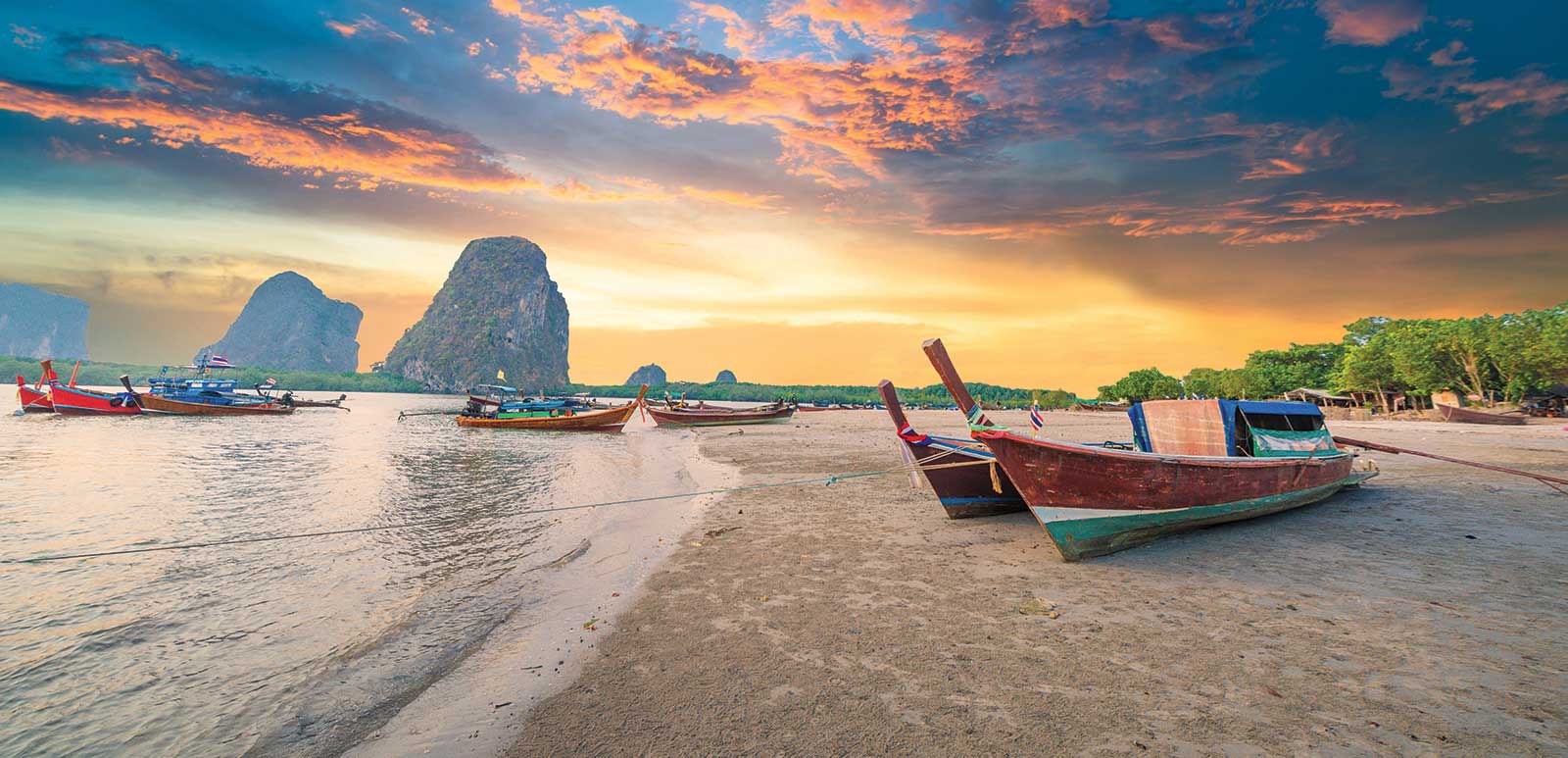
“There is no way we can grow our way out of this hole we are in,” Irwin LaRocque, secretary-general of the Caribbean Community (CARICOM), said at a virtual event in September.
From the white sand beaches of the Caribbean, Seychelles, Mauritius, and the Pacific to the back streets of Bangkok, to Africa’s sweeping national parks, countries are grappling with how to lure back visitors while avoiding new outbreaks of infection. The solutions range from wooing the ultrarich who can quarantine on their yachts to inviting people to stay for periods of up to a year and work virtually while enjoying a tropical view.
Tourism receipts worldwide are not expected to recover to 2019 levels until 2023. In the first half of this year, tourist arrivals fell globally by more than 65 percent, with a near halt since April—compared with 8 percent during the global financial crisis and 17 percent amid the SARS epidemic of 2003, according to ongoing IMF research on tourism in a post-pandemic world.
The October World Economic Outlook projected the global economy would contract by 4.4 percent in 2020. The shock in tourism-dependent economies will be far worse. Real GDP among African countries dependent on tourism will shrink by 12 percent. Among tourism-dependent Caribbean nations, the decline will also reach 12 percent. Pacific island nations such as Fiji could see real GDP shrink by a staggering 21 percent in 2020.
Nor is the economic hit limited to the most tourism-dependent countries. In the United States, Hawaii saw one in every six jobs vanish by August . In Florida, where tourism accounts for up to 15 percent of the state’s revenue, officials said it will take up to three years for the industry to recover.
Among G20 countries, the hospitality and travel sectors make up 10 percent of employment and 9.5 percent of GDP on average, with the GDP share reaching 14 percent or more in Italy, Mexico, and Spain. A six-month disruption to activity could directly reduce GDP between 2.5 percent and 3.5 percent across all G20 countries, according to a recent IMF paper .
Managing the revenue gap
In Barbados and Seychelles, as in many other tourism-dependent nations, the pandemic brought the industry to a virtual standstill. After successfully halting local transmission of the virus, the authorities reopened their island countries for international tourists in July. Still, arrivals in August were down almost 90 percent relative to previous years, drying up a vital stream of government revenue.
Barbados had gone into the crisis with good economic fundamentals, as a result of an IMF-supported economic reform program that helped stabilize debt, build reserves, and consolidate its fiscal position just before the crisis struck. The IMF augmented its Extended Fund Facility program by about $90 million, or about 2 percent of GDP, to help finance the emerging fiscal deficit as a result of plummeting revenues from tourism-related activity and increasing COVID-related expenditures.
“The longer this lasts, the more difficult it gets to maintain,” says Kevin Greenidge, senior technical advisor to Barbados Prime Minister Mia Mottley. “What we don’t want to do is operate policy-wise in a manner that will jeopardize the gains in terms of the fundamentals that we have made.”
On the other side of the world, Seychelles, a country that entered the crisis from a similar position of strength, will still be challenged to return to medium-term fiscal sustainability without significant support. Just before the crisis struck, the government had rebuilt international reserves and consolidated its fiscal positions. Even so, the ongoing pandemic struck the Indian Ocean island nation very hard as tourism revenues fell while COVID-related expenditures increased.
“It is too early to determine whether the crisis represents a permanent shock and how it will shape the tourism industry going forward,” says Boriana Yontcheva, the IMF’s mission chief to Seychelles. “Given the large uncertainties surrounding the recovery of the sector, innovative structural policies will be necessary to adapt to the new normal.”
All over the world, tourism-dependent economies are working to finance a broad range of policy measures to soften the impact of plummeting tourism revenues on households and businesses. Cash transfers, grants, tax relief, payroll support, and loan guarantees have been deployed. Banks have also halted loan repayments in some cases. Some countries have focused support on informal workers, who tend to be concentrated in the tourism sector and are highly vulnerable.
An analysis of the tourism industry by McKinsey & Company says that multiyear recovery of tourism demand to 2019 levels will require experimenting with new financing mechanisms.
The consulting firm analyzed stimulus packages across 24 economies totaling $100 billion in direct aid to the tourism industry and $300 billion in aid across other sectors with significant involvement in tourism. Most direct stimulus was in the form of grants, debt relief, and aid to small and medium-sized enterprises and airlines. The firm recommends new ways to support the industry, including revenue-sharing mechanisms among hotels that compete for the same market segment, such as a stretch of beachfront, and government-backed equity funds for tourism-related businesses.
Development challenge
The crisis has crystallized the importance of tourism as a development pathway for many countries to decrease poverty and improve their economies. In sub-Saharan Africa, the development of tourism has been a key driver in closing the gap between poor and rich countries, with tourism-dependent countries averaging real per capita GDP growth of 2.4 percent between 1990 and 2019—significantly faster than non-tourism-dependent countries in the region, according to IMF staff.
Smaller, tourism-dependent nations are in many ways locked into their economic destinies. Among small island nations, there are few, if any, alternative sectors to which they can shift labor and capital.
Seychelles, for example, has benefited from increases in tuna exports during the COVID-19 period, which have somewhat offset tourism losses, but these additional earnings remain a fraction of tourism receipts. The government is also carrying out a plan to pay wages to displaced tourism-sector workers while offering opportunities for retraining.
Meanwhile, the government in Barbados is trying to maintain social spending and reprioritize capital spending to create jobs, at least temporarily, in nontourism sectors such as agriculture and infrastructure development.
The Caribbean Hotel and Tourism Association has projected that as many as 60 percent of the 30,000 new hotel rooms that were in the planning or construction phase throughout the Caribbean region will not be completed as a result of the crisis.
Still, the crisis is being viewed as an opportunity to improve the industry in the medium and long term through greater digitalization and environmental sustainability. The UNWTO has encouraged support for worker training in order to build digital skills for harnessing the value of big data, data analytics, and artificial intelligence. Recovery should be leveraged to improve the industry’s efficient use of energy and water, waste management, and sustainable sourcing of food.
“In a sector that employs 1 in 10 people globally, harnessing innovation and digitalization, embracing local values, and creating decent jobs for all—especially for youth, women, and the most vulnerable groups in our societies—could be at the forefront of tourism’s recovery,” says UNWTO Secretary-General Zurab Pololikashvili.
Adjusting to a new normal
As the immediate impact of lockdowns and containment measures eased during the second half of 2020, countries started looking for a balance.
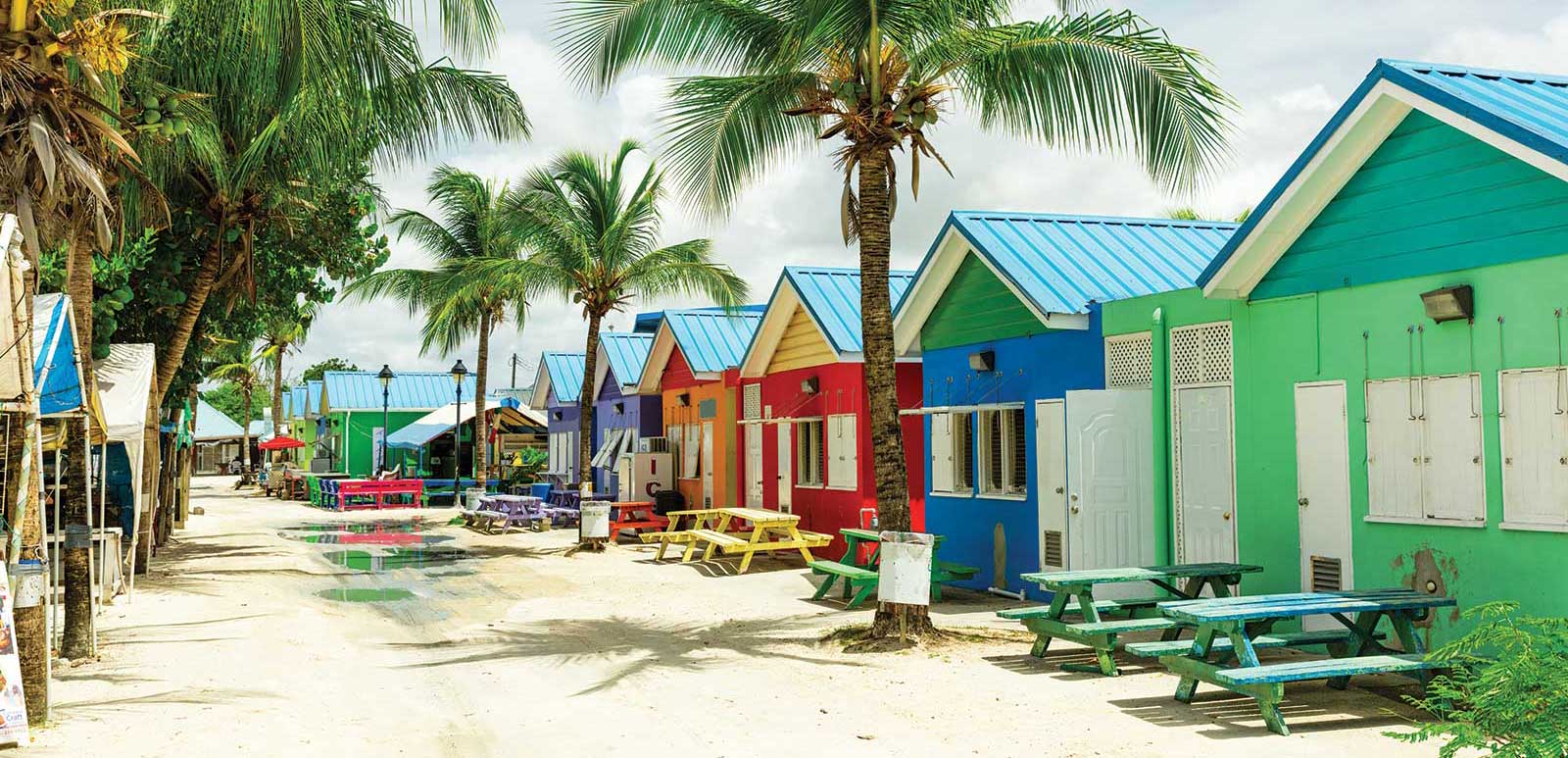
Thailand, Seychelles, and other countries approved programs that would admit tourists from “lower-risk” countries with special quarantine requirements. Fiji has created “blue lanes” that will allow seafaring visitors to arrive on yachts and quarantine at sea before they unleash “the immense economic impact they carry aboard,” Prime Minister Frank Bainimarama declared on Twitter. St. Lucia requires a negative COVID-19 test no more than seven days before arrival. Australia created a “travel bubble” that will eliminate quarantine requirements for travelers from New Zealand. CARICOM countries have also created a “regional travel bubble” that eliminates testing and quarantine for people traveling from countries within the bubble.
In a new era of remote work, countries and territories such as Barbados, Estonia, Georgia, Antigua and Barbuda, Aruba, and the Cayman Islands offer new long-term permits, lasting up to 12 months in some places, to entice foreign visitors to bring their virtual offices with them while spending in local economies.
Japan, which had seen its international arrivals triple from 2013 to 2018, started lifting border closures for travelers from certain countries at the end of October. To accommodate a post-pandemic tourism rebound, an IMF Working Paper recommends that the government continue a trend of relaxing visa requirements, draw visitors away from urban centers to less populated regions of the country, and complement a tourism comeback with improvements to labor resources and tourism infrastructure.
The World Tourism and Travel Council in a report on the future of the industry said the pandemic has shifted travelers’ focus to domestic trips or nature and outdoor destinations. Travel will largely be “kickstarted by the less risk averse travelers and early adopters, from adventure travelers and backpackers to surfers and mountain climbers,” the report says.
Leisure travel will lead the comeback in the tourism and travel sector. Business travel, a crucial source of revenue for hotels and airlines, could see a permanent shift or may come back only in phases based on proximity, reason for travel, and sector.
In the end, the return of tourism will likely hinge on what will be a deeply personal decision for many people as they weigh the risk of falling ill against the necessity of travel. The private sector backed by some tourism-dependent nations is developing global protocols for various travel industries, including a call for more rapid testing at airports to boost confidence in traveling.
“The fact is people do not feel comfortable traveling. We have not put in the necessary protocols to give them that comfort,” St. Lucia Prime Minister Allen Chastanet said at a September virtual event. “After 9/11, the TSA [Transportation Security Administration] and other security agencies around the world did a fantastic job of developing protocols that regained the public’s confidence to travel, and sadly with this pandemic we haven’t done that.”

ADAM BEHSUDI is on the staff of Finance & Development.
Opinions expressed in articles and other materials are those of the authors; they do not necessarily reflect IMF policy.
Related Features
- Rebuilding Worker Power
- The Accidental Economist: Lisa D. Cook of Michigan State University
You might also like
- COVID-19 and Trust Among the Young
- Containing COVID-19 in the Land of the Thunder Dragon
- The Journey of the Covid-19 Vaccine
- Going the Last Mile
- Pandemic Lessons
- Toward better pandemic preparedness
- F&D HOMEPAGE
Latest Issues

September 2024

December 2023
- About F&D Magazine
Social Media
- F&D on Facebook
- F&D on LinkedIn
F&D STAFF
- Gita Bhatt, Editor-In-Chief
- Nicholas Owen, Managing Editor
- Andreas Adriano, Senior Editor
- Jeff Kearns, Senior Editor
- Peter J. Walker, Senior Editor
- Andrew Stanley, Assistant Editor
- Bruce Edwards, Multimedia Content
- Noha Elbadawy, Multimedia content
- Melinda Weir, Production Manager
- Rekia Ennaboulssi, Web Manager
- Marta Doroszczyk, Digital Marketing
- Natalia Venegas Figueroa, Digital Marketing
- Salsa Mazlan, Digital Marketing
- Kwabena Akuamoah-Boateng, Social Media Editor
UN Tourism | Bringing the world closer
Share this content.
- Share this article on facebook
- Share this article on twitter
- Share this article on linkedin
2nd UNWTO Global Summit on City Tourism
- All Regions
The 2nd Global Summit on City Tourism , organized in collaboration with the Moscow City Government Committee on Tourism and Hotel Industry , is the venue for the presentation of the central themes of the second phase of the project. Accordingly, a presentation will be given on the development of the prototype that is being developed in Madrid in collaboration with Madrid Visitors and Convention Bureau and the UNWTO Affiliate Members for the creation of new tourism products in urban areas. With this 2nd Global Summit on City Tourism, the UNWTO and the City of Moscow seek to elicit the exchange of ideas, experiences and information among the different stakeholders in the public and private sectors. This will contribute to applying the knowledge of everyone involved in a practical and visible way, with mutual learning, to spawn specific projects in the area of city tourism that materialize into models that can be replicated in other cities worldwide. The UNWTO and the Committee on Tourism of Moscow also aim to position tourism as a legitimate backbone for other sectors relating to urban development in order to project tourism’s full potential in the conception of cities on a large scale. A new feature of this Summit will be a Speed networking session to encourage direct contact and further exchange among the participants. This Summit is also preceded by a meeting of the Affiliate Members on 19 September , open to existing and potential members, i.e., all those who wish to share the experience of the only forum of this nature within the United Nations, where interaction transpires among private companies, destinations and universities around the world to create new networks to review issues related to tourism.
Topics to be covered Panel 1: Specialized products Implementing innovative strategies to design specialized products with high added value for specific market niches that enhance the visitor's experience Panel 2: Measuring the impact of tourism in cities The importance of awareness of the economic and social impact of city tourism in national and local economiess Panel 3: Cities, case studies and assessment tools The exchange of proven experiences in terms of public-private collaboration, communication strategies, and technology, as well as benchmarking tools for the evaluation of such actions will also be one of the central topics to be discussed at the Summit Panel 4: The role of tourism in urban development Tourism plays an essential role in the design of strategies related to urban development in the broadest sense. It forms part of a large and complex puzzle in which disparate and independently managed pieces need to fit together, linked to issues as diverse as infrastructure, transportation, culture, sustainability, quality of life and local idiosyncrasies. Participants This Summit is aimed at representatives from the governmental and non-governmental sector relating to accommodation, transport, intermediation, technology, culture, academia, retail, handicrafts, insurance, payment systems, tourism services of all kinds and any other segment related to urban development and tourism.
Transport arrangements
Air transport the 2 nd global summit on city tourism has been registered with the website www.skyteam.com with respect to air transport of the congress. this site allows you to buy airline tickets to this event at a discount of 5% to 15% for all participants. upon booking you will need to enter the event code: congress - 2469s..
Accomodation The local organizers have negotiated special discounted hotel rates for the conference delegates at the Radisson Slavyanskaya Hotel and Business Centre . To take advantage of these rates, participants must make their reservations online through the following link: http://unwto.sputnic-sbt.ru/ .
Please note, to secure the special discounted rates, bookings should be advanced as soon as possible.
Slavyanskaya Hotel and Business Centre : Official Hotel for the 2 nd Global Summit on City Tourism
The 2 nd Global Summit on City Tourism will take place at the Radisson Slavyanskaya Hotel and Business Centre in Moscow.
Located adjacent to the Europe Plaza, the Radisson Slavyanskaya Hotel and Business Centre, Moscow features 427 plush, comfortable rooms with thoughtful amenities, including free high-speed, wireless Internet access, and individual climate control. Non-smoking rooms can be made available upon request.
Guests enjoy delicious international dining options, an on-site fitness center and flexible meeting facilities, spanning more than 4,400 square feet.
Special discounted rates for the participants of the 2 nd Global Summit on City Tourism are:
Languages The sessions will be held in English and Russian. Simultaneous interpretation will be provided in both languages.

- technical_note_2.pdf
- istanbul_declaration_on_city_tourism.pdf
- information_note_eng2_final_0.pdf
- preliminary_programme_moscow_v9_0309.pdf
- speakers_0.pdf
Related Content
China summer tourism summit (news from members), 6th global summit on urban tourism, 5th global summit on city tourism, 4th global summit on city tourism.

IMAGES
VIDEO
COMMENTS
UN Tourism and COVID-19. As the world is facing an unprecedented global health, social and economic emergency with the COVID-19 pandemic, travel and tourism is among the most affected sectors with airplanes on the ground, hotels closed and travel restrictions put in place in virtually all countries around the world. Therefore, UN Tourism has launched a new dashboard on COVID-19 and tourism ...
Tourism is one of the sectors most affected by the Covid-19 pandemic, impacting economies, livelihoods, public services and opportunities on all continents. All parts of its vast value-chain have been affected. Export revenues from tourism could fall by $910 billion to $1.2 trillion in 2020. This will have a wider impact and could reduce global ...
The coronavirus pandemic caused a 72% decline in international tourist arrivals in 2020 and 71% in 2021, compared to 2019. This represents a loss of 2.1 billion international arrivals in both years combined. As a result, export revenues from international tourism plunged 63% in 2020 and 61% in 2021 (real terms) which amounts to a combined loss ...
International Tourism Highlights, 2023 Edition - The Impact of COVID-19 on Tourism (2020-2022) Revised and updated, October 2023 International Tourism Highlights, 2023 Edition - The Impact of COVID-19 on Tourism (2020-2022) ... Follow UNWTO on Twitter. Tweets by @UNWTO_pub. UN Tourism Publications | UN Tourism Home ...
The outbreak of COVID-19 has impacted countries at different times, in different ways and in varying degrees. Yet, around the world, response to curb the pandemic has translated into national lockdowns and a wide implementation of travel restrictions and shutdown of borders making tourism one of the hardest-hit sectors.
Home > UNWTO General Assembly Documents > List of Issues > Volume 2021, Issue 4 > TOURISM: FROM CRISIS TO TRANSFORMATION UNWTO and the COVID-19 Crisis Preliminary version for the 24th UNWTO General Assembly
As the current outbreak of the Coronavirus Disease (COVID-19) continues to develop, the World Health Organization (WHO) and the World Tourism Organization (UNWTO) are committed to working together in guiding the travel and tourism sectors' response to COVID-19.On 30 January 2020, the Director-General of the World Health Organization (WHO) declared the outbreak of COVID-19 to be a Public ...
• The Coronavirus COVID-19 pandemic presents the global community and the tourism sector with a major and evolving challenge. • The World Tourism Organization (UNWTO) has strengthened its collaboration with the World Health Organization (WHO). The two UN agencies met in Geneva to further advance a coordinated response to COVID-19. • UNWTO calls for solid international leadership and for ...
Tourism in Pre-Pandemic Times. International Tourists. International tourist arrivals in 2019. (10th consecutive year of sustained growth) Millions of Jobs. With a high share of women (54% of the workforce) and youth. Export Revenues. 3rd largest export category. 50% of total exports for many small developing countries.
COVID-19 has been a turning point in all sectors and industries. And tourism has suffered the most from the consequences of the global pandemic. Right now, one in three destinations worldwide (34% according to UNWTO data from July 2021), still have travel restrictions in place, and most require a negative COVID-19 test as a guarantee for entry.
2 COVID-19 AND TRANSFORMING TOURISM Tourism provides livelihoods for millions of ... 7 UNWTO, "COVID-19 Tourism Recovery: Technical Assistance Recovery Package", 2020, available at https ...
Before COVID-19, travel and tourism had become one of the most important sectors in the world economy, accounting for 10 percent of global GDP and more than 320 million jobs worldwide. ... (UNWTO). Tourism-dependent countries will likely feel the negative impacts of the crisis for much longer than other economies. Contact-intensive services key ...
The Impact of COVID-19 on Tourism (2020-2022) Revised and updated, October 2023. 2 International Tourism ighlights - 2023 Edition (Revised and updated, October 2023) ... Source: World Tourism Organization (UNWTO) ¹ Revenues include international tourism receipts and passenger transport fares. ² In local currencies and constant prices.
UN Tourism (UNWTO until 2023) is a specialized agency of the United Nations which promotes responsible, sustainable and universally-accessible tourism. Its headquarters are in Madrid, Spain. ... Before the outbreak of the COVID-19 pandemic, tourism stood at an all-time high: 1 out of 10 jobs worldwide depended on tourism and international ...
More importantly, restrictions on travel also prevent tourism from delivering on its potential to build a better future for all. This week the United Nations Secretary-General launched the Policy Brief " COVID-19 and Transforming Tourism ", which UNWTO assumed the lead role in producing. This landmark report makes clear what is at stake ...
UNWTO Briefing Note - Tourism and COVID-19, Issue 3. Understanding Domestic Tourism and Seizing its Opportunities ... travel normalization and with still important travel restrictions in place for international travel as a consequence of COVID-19, countries with higher shares of domestic tourism are likely to recover earlier and faster.
As tourism slowly restarts in an increasing number of countries, the World Tourism Organization (UNWTO) has released new data measuring the impact of COVID-19 on the sector. UNWTO emphasizes the need for responsibility, safety and security as restrictions on travel are lifted.
In this study, we revisit the tourism-led economic growth hypothesis for Tonga using the Fourier autoregressive distributed lag (FARDL) and Fourier Toda-Yamamoto (TY) causality test, using quarterly data over the sample from 1995Q1 to 2019Q4.
UNWTO Briefing Note - Tourism and COVID-19, Issue 3. Understanding Domestic Tourism and Seizing its Opportunities Description PDF An estimated 9 billion domestic tourist trips (overnight visitors) were recorded around the world in 2018, of which well over 50% in Asia and the Pacific. Worldwide, domestic tourism is over six times bigger than ...
The World Tourism Organization (UNWTO) has released a set of guidelines to help tourism sector emerge stronger and more sustainably from COVID-19. The guidelines highlight the need to act decisively, to restore confidence and, as UNWTO strengthens its partnership with Google, to embrace innovation and the digital transformation of global ...
The DGI Tourism project has developed a handbook with competencies for ISCED level 45 tourism professions. ** Europe The DGI Tourism handbook contains three units with competencies, topics divided in sub-units and implementation suggestions. The first unit revolves around the current and future tourism market, impacted by trends and innovation.
World Committee on Tourism Ethics; Ethics Convention; Accessibility; Tourism and Culture; Women's Empowerment and Tourism; COVID-19: Sociocultural Impact; Technical Cooperation. Silk Road; UN Tourism Academy. Courses, Webinars & Resources; UN Tourism Executive Education; UN Tourism QUEST; UN Tourism.TedQual; UN Tourism.TFDP; UN Tourism ...
Women's Empowerment and Tourism; COVID-19: Sociocultural Impact; Technical Cooperation. Silk Road; UN Tourism Academy. Courses, Webinars & Resources; UN Tourism Executive Education; UN Tourism QUEST; ... 59th CSA and UNWTO Conference on the International Code for the Protection of Tourists & UNWTO Affiliate Members Roundtable 15 Jun 2023 ...
Global Code of Ethics for Tourism; World Committee on Tourism Ethics; Ethics Convention; Accessibility; Tourism and Culture; Women's Empowerment and Tourism; COVID-19: Sociocultural Impact; Technical Cooperation. Silk Road; UN Tourism Academy. Courses, Webinars & Resources; UN Tourism Executive Education; UN Tourism QUEST; UN Tourism.TedQual ...
The Tourism Satellite Account: Recommended Methodological Framework 2008 (also known as the TSA: RMF 2008) provides the updated common conceptual framework for constructing a TSA.It adopts the basic system of concepts, classifications, definitions, tables and aggregates of the System of National Accounts 2008 (SNA 2008), the international standard for a systematic summary of national economic ...
2nd UNWTO Global Summit on City Tourism. All Regions; 18 Sep 13 Objectives. The 2nd Global Summit on City Tourism, organized in collaboration with the Moscow City Government Committee on Tourism and Hotel Industry, is the venue for the presentation of the central themes of the second phase of the project.Accordingly, a presentation will be given on the development of the prototype that is ...